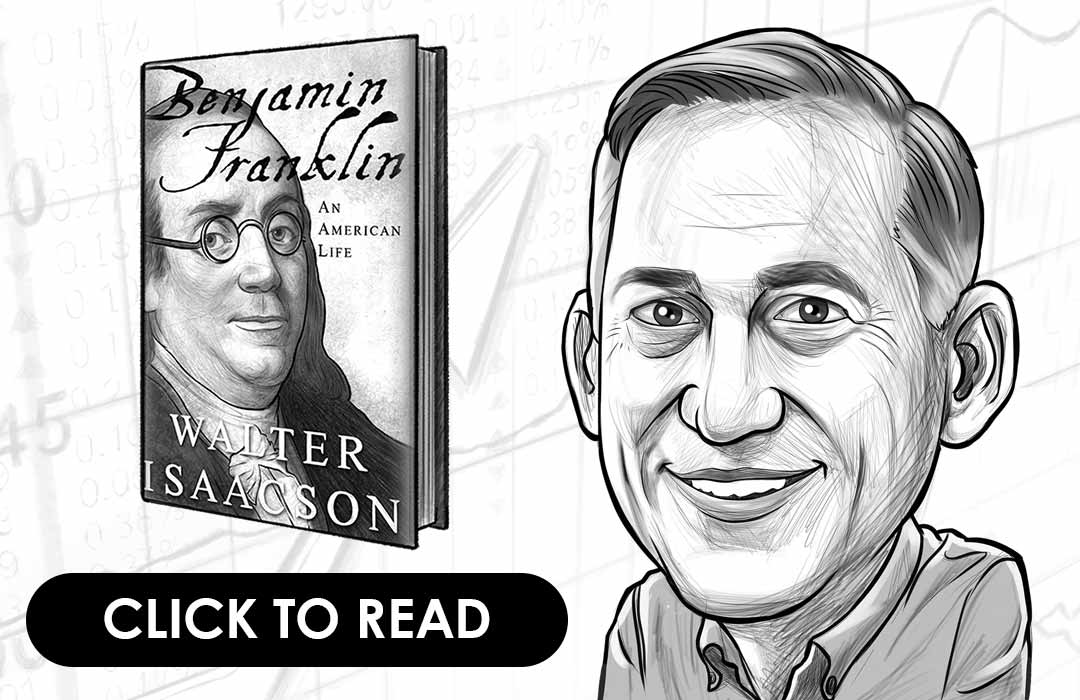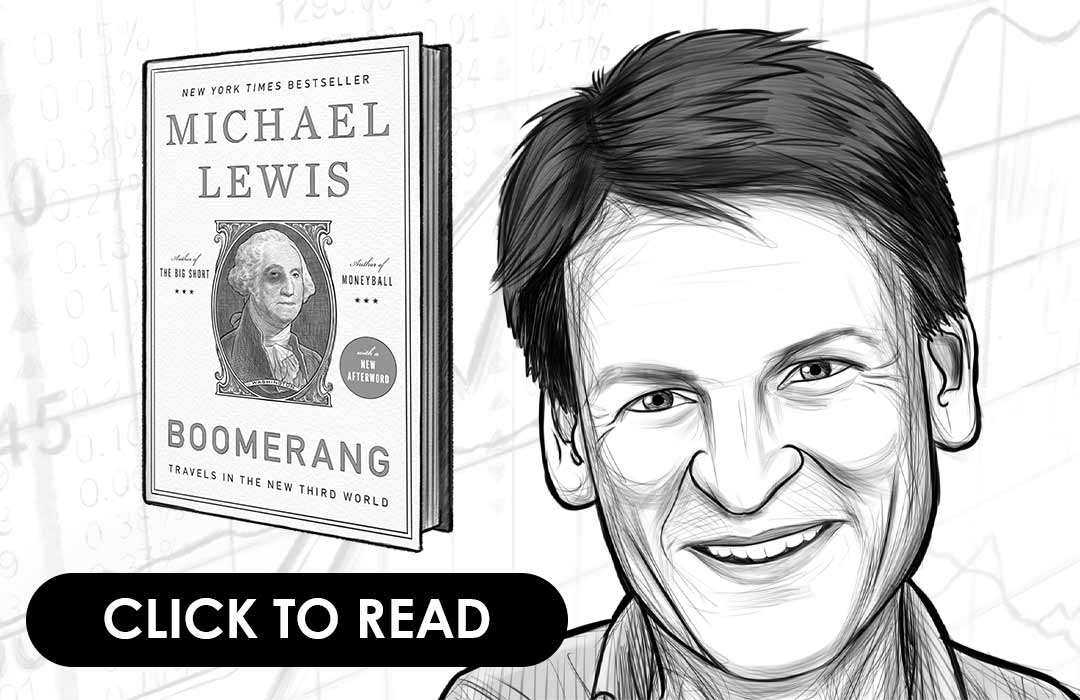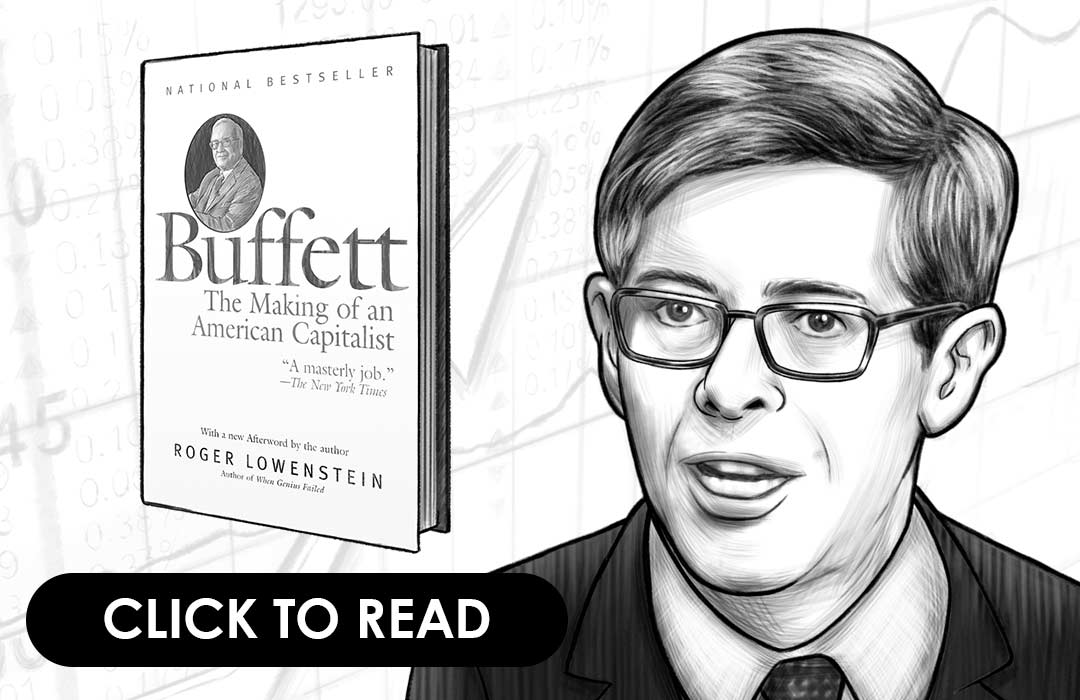An Executive Summary of The Simple Path to Wealth
By JL Collins
INTRODUCTION
The book The Simple Path to Wealth is written by JL Collins, who shares his investing experience in an approachable and simple way, so regardless of your experience, you don’t feel intimidated. Collins reveals key investing tools to make investing easier than it may seem. His main goal is to make people understand that financial freedom is having a choice, and the best path to building wealth is the simple path.
The author claims that first you need to know how to plan your personal finances and what kind of principles and approaches towards money you should have in order to start building wealth. For that reason, he breaks down fundamentals of investing in index funds, and presents differentiated investing strategies depending on your stage of investing and your stage of life, as well as your personal ability to handle risk.
If you want to hear more about personal finance and approaches towards money straight from JL Collins, go ahead and watch Clay’s episode of Millennial Investing, where he talks to Collins about this very book.
Understand the financial markets
in just a few minutes.
Get the daily email that makes understanding the financial markets
easy and enjoyable, for free.
ATTITUDE TOWARDS MONEY
A parable about the monk and the minister
Two close boyhood friends grow up and go their separate ways. One becomes a humble monk, the other a rich and powerful minister to the king. Years later they meet and as they catch up, the portly minister takes pity on the thin and shabby monk. Seeking help, he says: “You know, if you could learn to cater to the king, you wouldn’t have to live on rice and beans.” To which the monk replies: “If you could learn to live on rice and beans, you wouldn’t have to cater to the king.”
Collins points out that as most of us fall somewhere between the two and some strive to be like the minister, it’s probably best to be closer to the monk. This book will advocate that choice, and below are some other considerations Collins mentions.
SPEND LESS THAN YOU EARN. INVEST THE SURPLUS. AVOID DEBT
Living below your means is key- if your lifestyle matches – or even exceeds – your income, you will keep on being a slave to your primary income or debt, without other alternatives like saving and investing.
WE NEED “F-YOU MONEY”
F-you money is having enough money to be completely free of the demands of others and do exactly what you want with your time and life. The F-You Money buys you the freedom, the resources and time to explore the world on your own terms.
AVOID DEBT OR PAY IT OFF ASAP
The decision of having debt is one of the major reasons for you not being anywhere close to wealthy. The author recognizes that you should always think of the downsides of debt, which are the following:
- Your lifestyle is diminished because you have to get rid of a big chunk of your pay to pay off debt.
- You are enslaved to whatever source of income you have so you must continue paying off the debt you have, and by the way, in the US the total debt burden is $12 trillion.
- You feel the same type of negative emotions experienced by any other addict: shame, guilt and hopelessness.
You should recognize that debt is not normal in your financial life and should be paid off or avoided. What to do about the debt you already have? Here’s what the book suggests: You could make a list of your debts and rank them by interest rates, pay off the required minimum for all of them and then start paying off the one with the highest interest rates. Unless it’s not a business loan to expand a company or acquire assets, avoid debt.
CHANGE THE WAY YOU SEE MONEY
Do you want to be a millionaire? You will likely answer yes. But you don’t(!) You want to spend a million dollars and not be a millionaire. And that is a key difference in your mindset.
Instead of looking at money and thinking about new things you could get, consider that if you invest it, the money works for you and by the moment you get your return, you can reinvest the previous amount together with the return, so the money multiplies without you working for it.
This is a way to no longer repeat the same mistake of increasing spending and decreasing chances to build your wealth and financial independence. You should stop thinking about what money can buy and start thinking about what money can earn. Once you start doing it, you’ll start to see that when you spend money, not only is that money gone forever, but also the money it might have earned is gone as well.
Understand the financial markets
in just a few minutes.
Get the daily email that makes understanding the financial markets
easy and enjoyable, for free.
UNDERSTAND THE OPPORTUNITY COST
Opportunity cost is simply what you give up when you dedicate your money to one thing over another.
When you spend $20,000 on a new car, even in cash, there is an opportunity cost by no longer having that money available to work for you as an investment. In fact, that car is going to cost you far more than $20,000.
The author points out that you should think about the magic compounding, and he brings up an example of investing in a total stock market index fund which mirrors the market’s average returns of between 8 and 12% annually. As a proxy it provides a tangible number to use as our opportunity cost. If we used the lower number of 8%, we’d find out that at 8% $20,000 earns $1,600 per year. This means that your car costs you $21,600 in total and it’s only in the first year. In 10 years, you’d have $20,000 for the initial purchase of the car and an additional $16,000 for a total opportunity cost of $36,000!
Can you see the difference right there?
BASIC PRINCIPLES OF STOCKS AND STOCK MARKET
The stock market is the most powerful wealth-building tool of all time, however most people actually lose their money. And there are a few reasons for it:
- The market and the value and price of shares sometimes drop dramatically. It is normal and investors should expect it. When it happens, most advisors and investors panic and become influenced by the pressure of fear and uncertainty. As a result, they sell their shares for a lower price instead of keeping them and waiting to buy more stocks while the share price is low. Even though it happens on a daily basis, generally speaking the stock market moves upward and has moved upward throughout the years, though it’s very volatile.
- Another basic rule of thumb when investing in the stock market is that you cannot time the market and it’s impossible to predict when these drops will happen. The buzz we hear on the business news, as Collins calls it, is filled with those who claim they can predict it, but they cannot. This is how the illusion of complexity of investing is being created. Collins claims that investing is truly simple as long as you are patient, don’t yield to pressure from the so-called experts’ speculations and are willing to take risks.
- Owning a share is owning a part of a real, operating business. It means owning a piece of a company which hires employees, sells products or services and aims to grow and expand. As long as a company is doing well and stable, and investors can track it via financial statements, the company whose shares we own is on its way to not only keeping its value but also increasing it in the future. When you commit long-term to being a shareholder of a company, you should be convinced about its potential to increase the value it brings to the market.
3 TOOLS TO BUILD SIMPLE PATH TO WEALTH
Stocks
Stocks provide the best returns over time and serve as our inflation hedge. This is why this is the best wealth-building tool out there.
When you invest in the stock market, you should think that you are investing in a real, growing business. When you own shares of a business and they drop during a market crash, you should still keep them and not listen to advisors panicking that you should sell them!
Collins follows Warren Buffet’s advice to keep them, and as long as the company is safe and sound, the changes in its stock price are not likely to endanger your investment. They will rise and fall in the short term, but good companies earn real money along the way and in doing so their value rises over time.
Bonds
They seem to be steadier and more reliable. They serve as our deflation hedge, and since they pay coupon, they provide us with an income flow. When you buy bonds you are loaning money to a company or government agency.
In times of deflation and when the price of goods falls, when the money you lent is paid back, it has more purchasing power so it buys more goods. This increase in value helps offset the losses deflation will bring to your other assets. In times of inflation, the prices rise and money owed to you loses value. When you get paid back, your cash buys fewer goods. Then it is better to own assets like stocks that rise in value with inflation.
The 2 key elements of bonds are the interest rate and the term.
The interest is what the bond issuer (a borrower) has agreed to pay the bond buyer (a lender). The term is simply the length of time the money is lent. The only thing you have to worry about is the possibility of a company or agency not paying you back.
Interest rate risk is the second factor associated with bonds and it is tied to the term of the bond. The risk rises if you decide to sell your bond before the maturity date at the end of its term.
When interest rates rise, bond prices fall. When interest rates fall, bond prices rise. In either case, if you hold a bond to the end of its term you will get exactly what you paid for.
The length of the term of a bond is our third risk factor and it also helps determine the interest rate paid. The longer a bond’s term, the more likely interest rates will change significantly before it matures, and that means greater risk. Inflation is the biggest risk to your bonds. When you lend your money by buying bonds, during periods of inflation when you get it back, the money will buy less.
Cash
Having cold, hard cash or cash in our bank account is vital to keep around to cover routine expenses as well as to meet unexpected emergencies. Cash is also desired during times of deflation. The more prices drop, the more goods your cash can buy. On the other hand, when there is inflation and prices rise, the value of cash steadily erodes. In these days of low interest rates, idle cash doesn’t have much earning potential.
INVESTING STRATEGIES FOR BUILDING YOUR PORTFOLIO
Wealth Accumulation Portfolio
As Collins puts it: “Put all your eggs in one large, diverse basket and forget about it!”
The irony of investing is that the more you watch and fiddle with your holdings, the less successful you are likely to be. He suggests that you should fill your diversified basket, add as much as you can along the way and then ignore it for the rest of the time.
If you are at the stage of accumulating wealth, going for getting wealthy with this aggressive strategy of a portfolio consisting 100% of stocks, is the one potentially providing the highest returns in the long-term run.
Wealth Preservation Portfolio
This stage means being open to the cost of lower returns overall, because you want to have a steadier ride, sleep well at night and keep what you’ve accumulated so far. If you’re closer to retirement, feel like there’s less time for compounding growth of your investments to work and recover from market plunges, or you don’t feel capable of handling the aggressive 100% of stocks in your portfolio, you may want to adjust your assets allocation and start shifting into bond allocation.
The strategy to consider when wanting to differentiate your portfolio is to lean towards a proportion like this: 75% of stocks, 20% of bonds and 5% of cash. The rule of 4% says that if you can live on 4% of your investments per year, you are financially independent.
JL Collins advocates investing in index funds and recommends Vanguard index funds. He shares that he does it because the interest of investors and Vanguard is the same since the Vanguard funds and by extension the investors in those funds are the owners of Vanguard.
Vanguard was founded in 1975 by Jack Bogle with this basic concept that an investment’s firm’s interests should be aligned with those of its shareholders. The concept behind indexing is that, since the odds of selecting stocks that outperform is small, better results will be achieved by buying every stock in a given index. He sheds more light on:
- Vanguard Total Stock Market Index Fund
- Vanguard Total Bond Market Index Fund
- Vanguard Total World Stock Index Fund
This is an index fund that invests all over the globe. As the book points out, it’s a good idea to choose whatever global index fund includes the U.S. market, since it’s a huge chunk of the world economy. And as Collins claims you can’t afford not to own a part of it.
Understand the financial markets
in just a few minutes.
Get the daily email that makes understanding the financial markets
easy and enjoyable, for free.
CONCLUSION
Whether you already are a well-experienced investor, a beginner, or you want to start but don’t know how – this book sheds light on the whole concept of investing depending on individual factors. You can learn a handful of personal finance principles, investing approaches and the right tools to build and keep wealth.
By discussing his considerations, the author makes a point to approach investing as something that should not be considered complicated and should not intimidate anyone, because there is no perfect formula nor guaranteed solution to becoming rich from investing.
And remember: Whether you live like a monk or a minister, financial freedom is having a choice.







